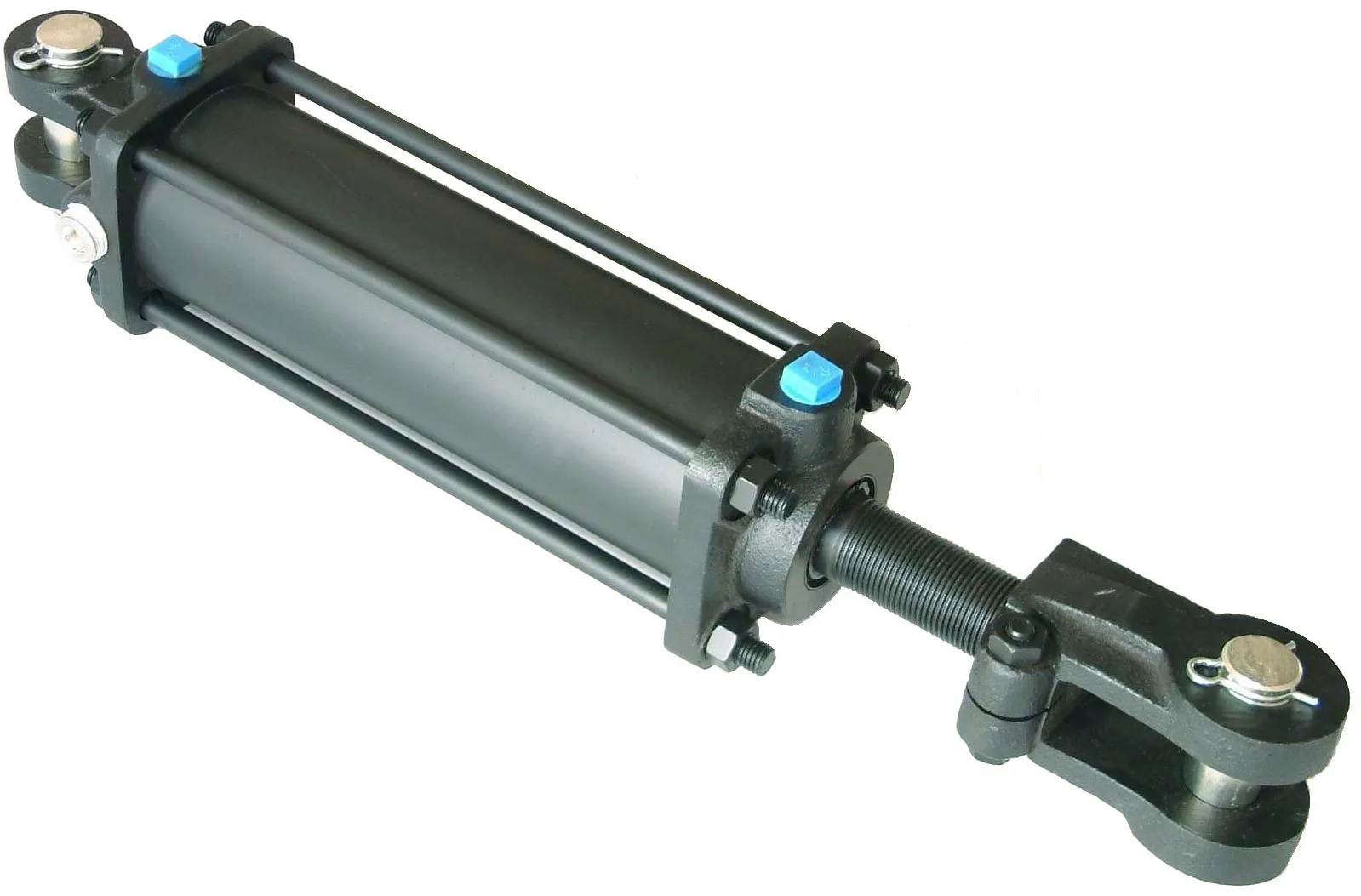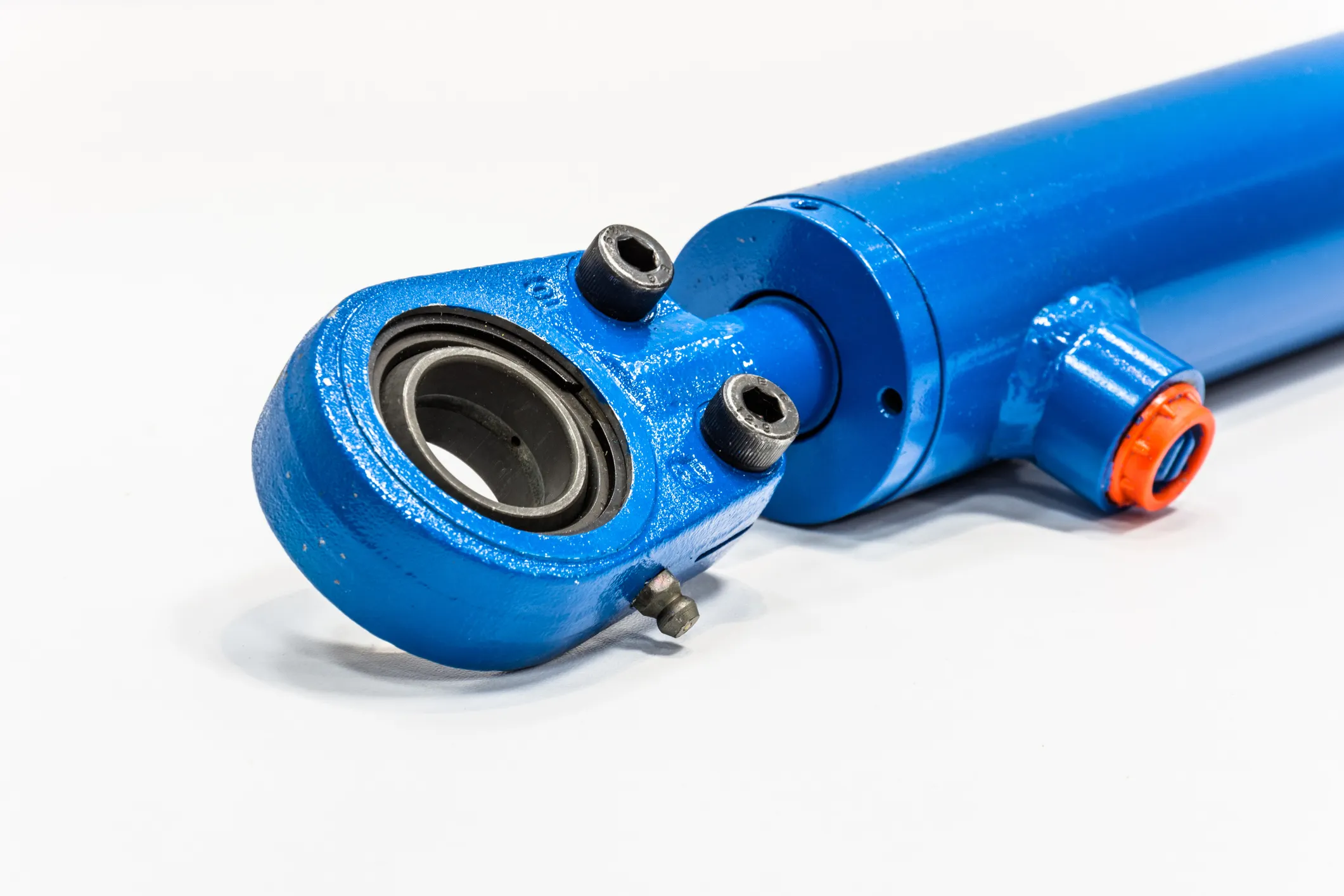Exploring the Versatile Applications of Industrial Hydraulic Cylinders in Manufacturing
Understanding the Key Components and Structure of Hydraulic Cylinders
Hydraulic cylinders are essential components in various industrial applications, providing reliable and efficient power for a wide range of tasks. These hydraulic systems consist of several key components, including the cylinder barrel, piston, piston rod, seals, and hydraulic fluid. The cylinder barrel houses the piston and hydraulic fluid, while the piston rod connects the piston to the external load. Seals ensure that the hydraulic fluid remains contained within the cylinder, allowing for smooth and consistent operation.
The Basic Principle of Hydraulic Cylinder Operation
Hydraulic cylinders operate based on the principle of converting hydraulic energy into mechanical energy. When pressurized hydraulic fluid is introduced into the cylinder, it pushes against the piston, creating a linear force that is used to move an external load. The controlled movement of the piston allows for precise positioning and lifting capabilities in industrial machinery and equipment.
Types of Hydraulic Cylinders in Industrial Applications
There are several types of hydraulic cylinders commonly used in manufacturing, including single-acting, double-acting, telescopic, and differential cylinders. Each type has its unique characteristics and applications, making them suitable for various industrial tasks.
- Single-acting cylinders are used in applications where one direction of force is required, such as in lifting equipment.
- Double-acting cylinders provide force in both directions, allowing for more versatile control and movement in machinery.
- Telescopic cylinders are designed to provide extended stroke lengths in compact spaces, ideal for applications with limited clearance.
- Differential cylinders utilize hydraulic pressure differentials to create varying levels of force, offering precise control over movement and speed.

Top Five Advantages of Industrial Hydraulic Cylinders
- High Power and Force Output: Hydraulic cylinders can generate significant force to lift heavy loads and perform challenging tasks.
- Precision and Control: The ability to regulate speed and position makes hydraulic cylinders ideal for precise industrial operations.
- Durability and Reliability: Hydraulic cylinders are built to withstand harsh environments and provide consistent performance over time.
- Compact Design: The compact size of hydraulic cylinders allows for easy integration into existing machinery and equipment.
- Low Maintenance Requirements: With proper care and maintenance, hydraulic cylinders can operate efficiently for extended periods.

Industry Applications of Hydraulic Cylinders
Industrial hydraulic cylinders are widely used across various sectors, including manufacturing, construction, mining, agriculture, and more. These versatile components play a crucial role in enhancing productivity and efficiency in different industries.
Manufacturing
In the manufacturing industry, hydraulic cylinders are utilized in machinery such as presses, injection molding equipment, and robotic systems. These cylinders provide the force and precision needed for shaping, cutting, and assembling products on production lines.
Construction
Construction equipment such as cranes, excavators, and bulldozers rely on hydraulic cylinders for lifting, digging, and pushing heavy materials. The robust performance of hydraulic cylinders ensures the smooth operation of construction machinery on job sites.
Mining
In the mining sector, hydraulic cylinders are integral to drilling rigs, dump trucks, and hydraulic shovels. These cylinders enable the efficient extraction of minerals and materials from mines, contributing to the overall productivity of mining operations.
Agriculture
Agricultural machinery such as tractors, harvesters, and irrigation systems benefit from the use of hydraulic cylinders for tasks like plowing, harvesting, and irrigation. The reliable performance of hydraulic cylinders supports sustainable farming practices and food production.
Selecting the Right Industrial Hydraulic Cylinder
When choosing an industrial hydraulic cylinder for a specific application, several factors must be considered to ensure optimal performance and reliability. Factors such as load capacity, stroke length, bore size, and operating conditions play a crucial role in determining the suitability of a hydraulic cylinder for a particular task.
Maintenance and Care of Hydraulic Cylinders
Regular maintenance and care are essential to prolonging the service life and performance of industrial hydraulic cylinders. Inspections, lubrication, and cleaning practices help prevent wear and damage, ensuring that hydraulic cylinders operate at their best capacity.
Installation and Maintenance Guide for Hydraulic Cylinders
Proper installation and maintenance of hydraulic cylinders are critical for their efficient operation and longevity. Following industry best practices for installation, cleaning, lubrication, and inspection can help maximize the performance and reliability of hydraulic systems.
Maintenance Tasks for Hydraulic Cylinders
- Cleaning: Regularly clean the external surfaces of hydraulic cylinders to remove dirt, debris, and contaminants that can affect performance.
- Lubrication: Apply suitable lubricants to the moving parts of hydraulic cylinders to reduce friction and wear, ensuring smooth operation.
- Checking Wear: Inspect seals, rods, and other components for signs of wear or damage, and replace any worn parts to prevent leaks and malfunctions.
Fault Diagnosis and Common Problems of Hydraulic Cylinders
When hydraulic cylinders experience issues such as leaks, slow operation, or erratic movements, proper diagnosis and troubleshooting are essential to identify and resolve the underlying problems. Understanding common faults and their causes can help maintain the performance of hydraulic systems in industrial settings.
Preventive Measures for Optimal Performance
To minimize potential problems and optimize the performance of hydraulic cylinders in manufacturing applications, preventive measures such as regular maintenance, inspections, and component replacements are recommended. By addressing issues proactively, companies can ensure the reliability and efficiency of their hydraulic systems.
How to Choose the Right Industrial Hydraulic Cylinder
Exploring the factors that should be considered when selecting industrial hydraulic cylinders for specific applications involves assessing load requirements, operating conditions, and compatibility with existing equipment. By understanding the key considerations, companies can choose the most suitable hydraulic cylinders for their manufacturing needs.
Long-Tail SEO Articles on Industrial Hydraulic Cylinders
1. “Enhancing Manufacturing Efficiency with Custom Hydraulic Cylinder Solutions”
2. “Optimizing Performance in Construction Equipment with Hydraulic Cylinder Upgrades”
3. “Sustainable Agriculture Practices: The Role of Hydraulic Cylinders in Farming Machinery”
Company Profile: Leading Hydraulic Cylinder Manufacturer
Our company is a reputable hydraulic cylinder replacement manufacturer with a diverse product line catering to various industrial needs. We have established ourselves as one of the leading manufacturers and wholesale distributors of hydraulic cylinders in both domestic and international markets.
With a commitment to quality, international certifications, customized services, state-of-the-art production equipment, and dedicated after-sales support, our company strives to deliver innovative solutions and reliable products to our customers. We prioritize customer satisfaction and technical excellence in every aspect of our business operations.
For more information about our products and services, please visit our website or contact our team for personalized assistance.
Author: lyl
